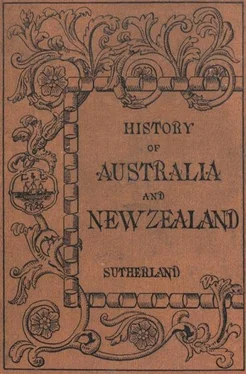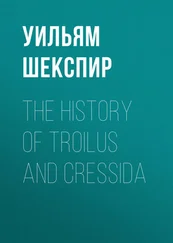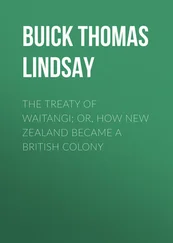In some tents the miners sit round boxes or stools, while, by the light of flaming oil-cans, they gamble for match boxes filled with gold-dust; in others they gather to drink the liquors illicitly sold by the “sly grog shops”. Many of the diggers betake themselves to the brilliantly-lighted theatres, and make the fragile walls tremble with their rough and hearty roars of applause: everywhere are heard the sounds of laughter and good humour. Then, at midnight, all to bed, except those foolish revellers who have stayed too late at the “grog shop”.
At dawn, again, they are all astir; for the day’s supply of water must be drawn from the stream ere its limpid current begins to assume the appearance of a clay-stained gutter. Making the allowances proper to the occasion, the community is both orderly and law-abiding, and the digger, in the midst of all his toil, enjoys a very agreeable existence.
5. The Licence Fee.—He had but one grievance to trouble his life, and that was the monthly payment of the licence fee. This tax had been imposed under the erroneous impression that every one who went upon the goldfields must of necessity earn a fortune. For a long time this mistake prevailed, because only the most successful diggers were much heard of. But there was an indistinguishable throng of those who earned much less than a labourer’s wage.
The average monthly earnings throughout the colony were not more than eight pounds for each man; and of this sum he had to pay thirty shillings every month for the mere permission to dig. To those who were fortunate this seemed but a trifle; but for those who earned little or nothing there was no resource but to evade payment, and many were the tricks adopted in order to “dodge the commissioners”. As there were more than one-fifth of the total number of diggers who systematically paid no fees, it was customary for the police to stop any man they met and demand to see his licence; if he had none, he was at once marched off to the place that served for a gaol, and there chained to a tree.
The police were in the habit of devoting two days a week to what was called “digger hunting”; and as they often experienced much trouble and vexation in doing what was unfortunately their duty, they were sometimes rough and summary in their proceedings. Hence arose a feeling of hostility among the diggers, not only to the police, but to all the officials on the goldfields. The first serious ebullition of the prevailing discontent took place on the Ovens, where a commissioner who had been unnecessarily rough to unlicensed diggers was assaulted and severely injured. But as violence was deprecated by the great body of miners, they held large meetings, in order to agitate in a more constitutional manner for the abolition of the fee. At first they sent a petition to Governor Latrobe, who declined to make any change. It was then hinted that, possibly, they might be driven to use force; and the Governor replied that, if they did, he was determined to do his duty. But in August, 1853, when the agitation was increasing, Latrobe hurriedly reduced the fee to twenty shillings per month. This appeased the miners for a time; but the precipitancy with which the Governor had changed his intention showed too plainly the weakness of the Government, for there was at that time scarcely a soldier in Victoria to repress an insurrection, if one should break out. Among the confused crowds on the goldfields there were numbers of troublesome spirits, many of them foreigners, who were only too happy to foment dissension. Thousands of miners had been disappointed in their hopes of wealth, and, being in a discontented frame of mind, they blamed the Governor for their misfortunes.
In spite of the concession that had been made to them, a spirit of dissatisfaction prevailed throughout all the goldfields; mutterings were heard as of a coming storm, and Latrobe, in alarm, sent to all the neighbouring colonies to ask for troops. As the Ninety-ninth Regiment was lying idle in Hobart Town, it was at once despatched to Melbourne.
6. Governor Hotham.—While matters were in this state, Governor Latrobe retired from office; and in June, 1854, Sir Charles Hotham arrived to fill the position. On his first arrival, he showed that his sympathies were, to a great extent, with the diggers. But he could scarcely be expected to make any important change until he had been a few months in the colony, and had learnt exactly the state of affairs, and, meanwhile, the discontent on the goldfields was daily increasing. The months of September and October, in 1854, were exceedingly dry; the creeks were greatly shrunk in volume, and in many places the diggers could find no water either for drinking or for gold-washing; and their irritation was not at all soothed by the manners of the commissioners and police. Besides this, the Government had thought it necessary to form a camp on the goldfields, so that a large body of soldiers dwelt constantly in the midst of the miners. The soldiers and officers, of course, supported the commissioners, and, like them, soon came to be regarded with the greatest disfavour.
The goldfield population was in this irritable state when a trifling incident kindled revolt.
7. Riot at Ballarat.—A digger named Scobie, late one evening, knocked at the door of Bentley’s Hotel, at Ballarat. Finding the place closed for the night, he tried to force an entrance, and continued his clamour so long that Bentley became angry, and sallied forth to chastise him. A crowd gathered to see the fight, and, in the darkness, Scobie’s head was split open with a spade. Whose hand it was that aimed the blow no one could tell; but the diggers universally believed that Bentley was himself the murderer. He was therefore arrested and tried, but acquitted by Mr. Dewes, the magistrate, who was said by the diggers to be secretly his partner in business. A great crowd assembled round the hotel, and a digger, named Kennedy, addressed the multitude, in vigorous Scottish accents, pointing out the spot where their companion’s blood had been shed, and asserting that his spirit hovered above and called for revenge. The authorities sent a few police to protect the place, but they were only a handful of men in the midst of a great and seething crowd of over eight thousand powerful diggers. For an hour or two the mob, though indulging in occasional banter, remained harmless. But a mischievous boy having thrown a stone, and broken the lamp in front of the hotel, the police made a movement as if they were about to seize the offender. This roused the diggers to anger, and in less than a minute every pane of glass was broken; the police were roughly jostled and cut by showers of stones; and the doors were broken open. The crowd burst tumultuously into the hotel, and the rooms were soon swarming with men drinking the liquors and searching for Bentley, who, however, had already escaped on a swift horse to the camp. As the noise and disorder increased, a man placed a handful of paper and rags against the wooden walls of the bowling alley, deliberately struck a match, and set fire to the place. The diggers now deserted the hotel and retired to a safe distance, in order to watch the conflagration. Meanwhile a company of soldiers had set out from the camp for the scene of the riot, and on their approach the crowd quietly dispersed; but by this time the hotel was reduced to a heap of smouldering ruins.
8. Conviction of Rioters.—For this outrage three men were apprehended and taken to Melbourne, where they were tried and sentenced to imprisonment. But Bentley was also re-arrested and tried, and as his friend Dewes could on this occasion be of no assistance to him, he was sentenced to three years of hard labour on the roads. Dewes was dismissed from the magistracy, and Sir Charles Hotham did everything in his power to conciliate the diggers. They were not to be thus satisfied, however, and held a stormy meeting at Ballarat, in which they appointed a deputation, consisting of Kennedy, Humffray, and Black, to demand from the Governor the release of the three men condemned for burning Bentley’s Hotel. Hotham received them kindly, but declined to accept their message, because, he said, the word “demand” was not a suitable term to use in addressing the representative of Her Majesty. As the diggers were haughty, and refused to alter the phrase, the Governor intimated that, under these circumstances, no reply could be given. The delegates having returned to Ballarat, a great meeting was held, and Kennedy, Humffray, Black, Lalor, and Vern made inflammatory speeches, in which they persuaded the diggers to pass a resolution, declaring they would all burn their licences and pay no more fees.
Читать дальше












